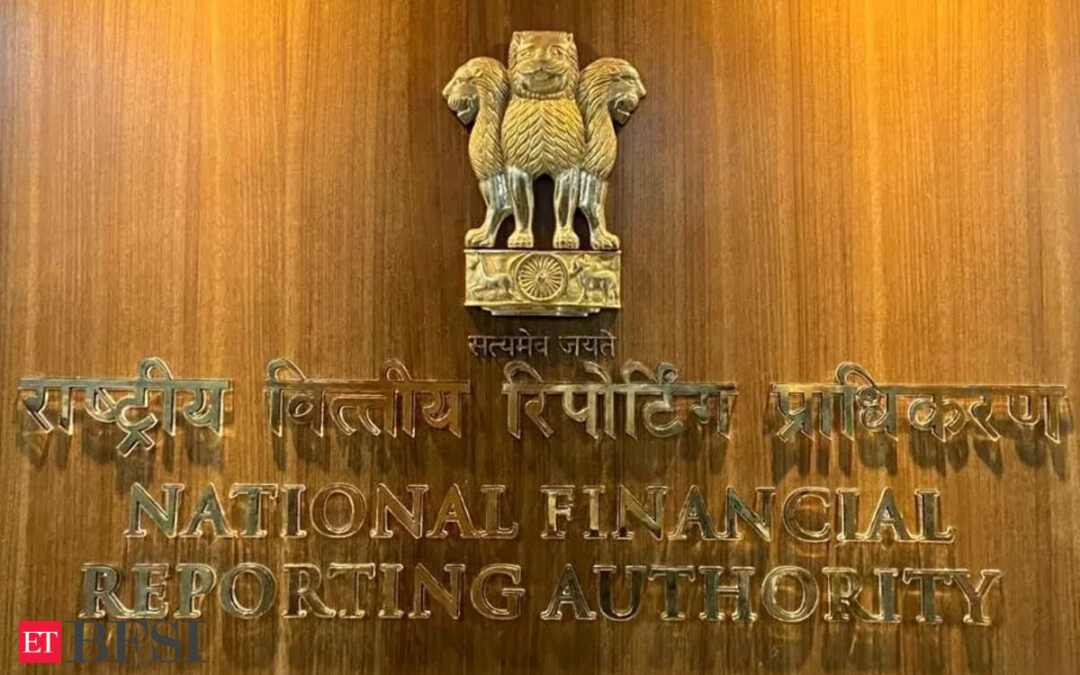The National Financial Reporting Authority (NFRA) is planning to directly engage audit committees of large listed companies to sensitise them about accounting standards and their role, a first-of-its kind regulatory outreach to curb corporate frauds, people aware of the watchdog’s thinking told ET.
The audit regulator is firming up a mechanism to hold regular huddles with the audit committees, said one of the persons, who did not wish to be identified.
These committees comprise mainly independent directors and oversee the statutory audit compliances of companies.
“The audit committee of public interest companies could be invited by the NFRA for discussions. The idea is to ensure an effective two-way communication between the auditors and the audit committees of these companies all through, as stipulated by audit standards,” the person said.
Under Section 177 of the Companies Act, the boards of listed companies, among others, are mandated to set up audit committees. Such a committee must have at least three directors, with the majority being independent ones.
The NFRA could apprise the audit committees of the kind of questions they should regularly ask their auditors and what their expectations from the auditors should be, the person said.
The outreach is the latest in a series of steps being weighed by the audit watchdog to ensure early detection of corporate fraud or stress and bolster the overall audit ecosystem. ET had on January 9 reported that the NFRA is considering annual inspections of major audit firms to gauge their adoption of stipulated accounting standards and processes.
Another person said auditors sometimes hand over their reports or presentations to the audit committee of a company at the last minute, at times just before the board is about to approve the financial statement. So, the committee, strapped for time, endorses the auditors’ reports in a hurry and doesn’t properly scrutinise them, he said, adding, “More importantly, there is no effective two-way communication in such cases.”
The latest outreach will help auditors as well, said the second person. If the auditors keep flagging certain issues, the audit committee or the board or the management won’t be able to ignore these issues.
Vishesh C Chandiok, chief executive at Grant Thornton Bharat, termed the move a step in the right direction. “Audit quality requires all market participants to play their role, and the regulator and audit committees are two critical lines of defence in this context,” he said.
A Deloitte partner said, “This initiative holds the potential to enhance transparency, ensure robust adherence to accounting standards, and fortify the financial reporting ecosystem.”
While the Companies Act, 2013–coming as it was well after the 2009 Satyam scandal–had substantially raised focus on corporate governance, its provisions were tested after the 2018 IL&FS crisis flared up. The auditors and those charged with governance purportedly failed to act on time, resulting in the biggest scandal in the Indian shadow banking space and spurring demand for stricter enforcement of the two-way communication process.
In the Act, the need for strict enforcement of auditing standards have been built into the responsibilities of not just auditors but also the audit committee and the directors of a company.
Moreover, the Standard on Auditing (SA) 260 states that “effective two-way communication is important in assisting the auditor and those charged with governance in understanding matters related to the audit in context, and in developing a constructive working relationship”. “This relationship is developed while maintaining the auditor’s independence and objectivity,” it added.
Similarly, the director’s responsibility, as envisaged in Section 134 of the Companies Act, suggests that they have to take “proper and sufficient care for the maintenance of adequate accounting records in accordance with the provisions of this Act for safeguarding the assets of the company and for preventing and detecting fraud and other irregularities”.










